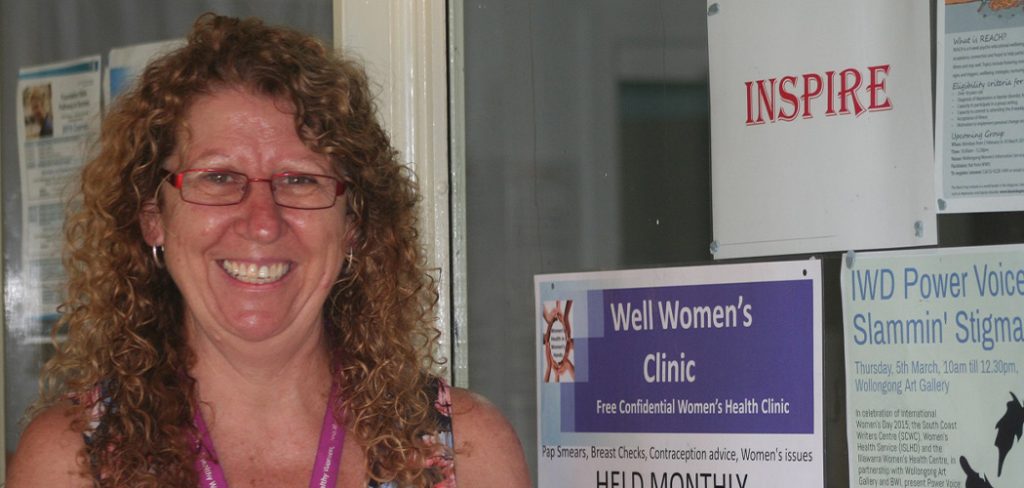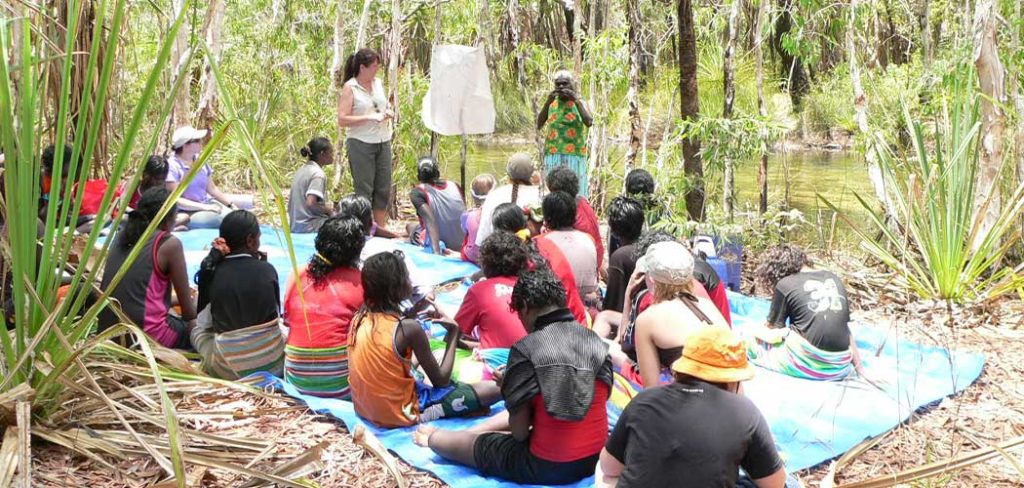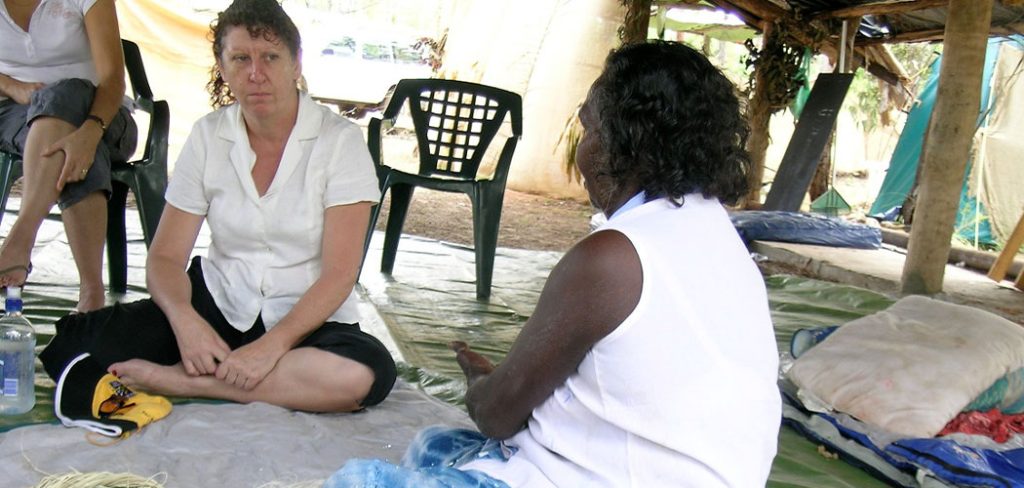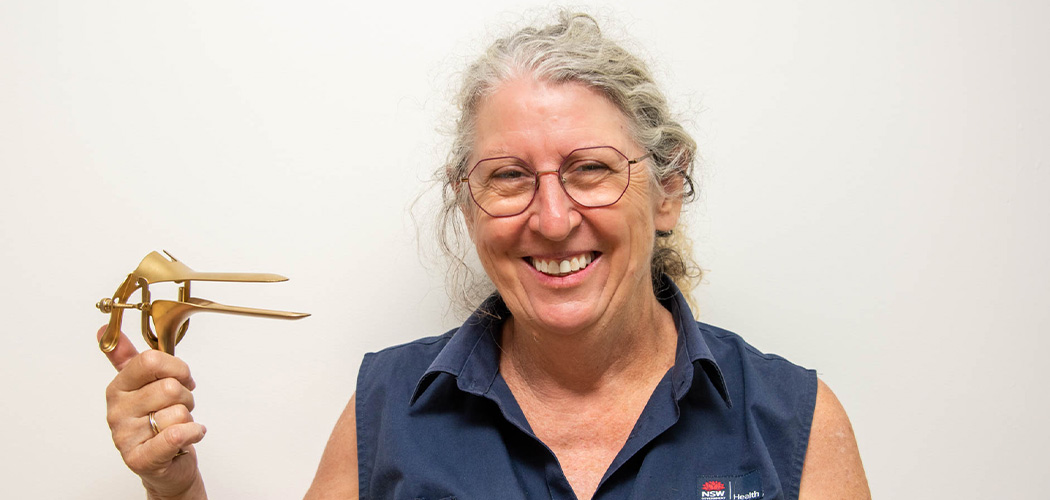Women’s health is much more than reproductive and sexual health, says long-time women’s health nurse (WHN) Annette Heather.
“As a women’s health nurse you need to have broad experience and understand all aspects of women’s health – it’s not just reproductive health and pap smears. Sexual and reproductive health is only part of women’s health – it’s about the general health and wellness of a woman.”
Annette was the 2022 winner of the Australian Women’s Health Nurses Association (AWHNA) Golden Speculum award. The award is two-fold – for recognition of excellence in the provision of women’s healthcare, and for outstanding contribution to the AWHNA.
“As a women’s health nurse, I support women’s choices. I’m their advocate. Yesterday I had a woman who had to go to A&E but I knew she wasn’t comfortable with seeing a male doctor and may be traumatised. I phoned ahead and advised them of this at the hospital as she wouldn’t have spoken up herself. It made her experience less traumatic at the hospital and made for a better health outcome,” says Annette.
Annette started out in women’s health more than 30 years ago as a midwife, and currently works at Mid North Coast Local Health District in NSW where she has made a significant contribution to the health and wellbeing of women in the area. This has included training in women’s health for midwives and other staff, and success in obtaining grants to run wellbeing camps in conjunction with community groups and Aboriginal health organisations.

Initially hospital trained in NSW, Annette did midwifery aged 20! Because her aunt (a cleaner in maternity) said to her “you’ve got to do your middy”. After which, she travelled widely overseas working in both public and private sectors as a midwife and in home care – gaining a breadth of knowledge and experience about health, society, and life as a whole.
On her return to Australia, Annette “went out bush to Arnhem Land” for several years where she saw the role of a women’s health nurse being advertised. “I thought that’s sounds like something I’d like to do.”
The role allowed her to obtain a certificate through Family Planning NT, and provided outreach education and upskilling to Aboriginal Health Workers (AHWs), midwives and remote community health staff.
“I loved working with the Aboriginal women in remote areas, and just sitting under a tree and talking about their ‘stuff’.”
“Working in remote communities is both physically and emotionally draining. I often felt like I was just applying a band aid over the top [of the problem/s]. Despite that, it was the best seven years of my life and the communities are very supportive.”

Annette works alongside AHWs in her current role continuing to provide domestic violence education, clinical services and support under the banner of women’s health.
“You need to respect these communities, and respect women’s choices. You have to keep turning up and develop trust. Without the AHW walking beside me I would never be able to work as closely with the community that I do.”
Annette moved into working in sexual health and drug and alcohol in Townsville in north Queensland where she completed a Masters of Public Health aged in her 50s (with a lot of tutoring help from my sister), and credits that with her ability to apply for community health grants, advocating further for women’s health.
She then worked in Illawarra Shoalhaven Local Health District in NSW for six years as the CNC in women’s health. It was the last move before her current role.
“I’m not a city girl and returned to the country. I live in a beautiful part of the world – Nambucca Valley.”
One of her proud achievements at Nambucca Valley was being able to help secure significant funding for a mural to make the Bowraville HealthOne centre more welcoming for the Aboriginal community.
Diversity and breath in women’s health
Women’s health provision varies from region to region, depending on the demographic and needs of women, says Annette.
“You need to understand chronic health issues such as how to help women manage their lives whether that is their medication, or their lifestyle. There is a lot of domestic violence in our society so awareness and support also underpins our work.”
Annette provides a holistic service for women, offering health promotion and education focused on prevention and good health.
“I provide one-on-one care for women. Most GPs are only able to see women for 15 minutes – that’s very little time to be able to understand what’s going on in the woman’s life. I can give them more time to provide opportunistic health screening and assessment for women to complement the GP management.”
It also means being aware of current trends, misinformation, and generational needs, she says.

“For example, young people who are anti-hormone is becoming more prominent in terms of birth control. They do not want to take hormones but are not always aware of other choices and can risk unplanned pregnancies.”
“You often have to find out the myths of what women have been told or read about and provide evidence-based information for them to make their own informed choices. We provide the information and advise them on how they can keep themselves safe and work with their choices.”
Health promotion clinics also provide an open forum for women to discuss a range of issues or concerns.
“I ask women: ‘What’s worrying you?’ It might be about themselves or might be about their granddaughter. There are always multiple issues. A lot of people isolated on farms are still in recovery from the fires and drought. Mental health is a big issue but there are a broad range of issues that cover the lifespan of women which can be difficult for them to access so we try to assist with that.”
Network
Annette was an executive member of the AWHNA for seven years, holding positions as treasurer, membership secretary and president.
“The AWHNA is an association for women’s health nurses and can support nurses working in this or a similar field with difficult complex clients, sourcing services for clients, support with coping with the demands of the role, upskilling and networking. There’s a whole gamut of us working in different areas in women’s health. In the role of WHN you work solo and do not often have a lot of people around you who you can bounce off. You are the decision-makers.
“It helps to make the job easier, safer and more empowering with the support of an association behind you. It’s your tribe where you can bounce ideas, safely vent your frustrations, confide, and problem-solve.”
For more information or to join, visit the AWHNA









3 Responses
A well deserving recipient of the Golden Speculum Award for Excellence in Women’s Health.
An amazing work journey and proud to be part of your tribe!
How interesting and Wonderful Annette! Thank you for sharing ANMJ and highlighting the important work Women’s Health Nurses do!
Annette, you are an amazing Womens Health Nurse and such a strong advocate for women and women’s health care. Very deserved award and it is a pleasure to have worked with you.